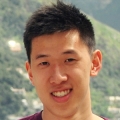You have no items in your cart. Want to get some nice things?
Go shopping
The car smelled of cigarettes, must, coffee-stained pages of concertos. The boy hadn’t ever noticed it before, and it gave the ride a rather distinct feeling – though what it was exactly he couldn’t say. He tried lowering the window, but the scent remained. It was not unpleasant; rather, it seemed surprising in a familiar way, like the beginning of summer. Outside the fields passed by in a blur of green and yellow and the low sun hovered on the highway ahead.
“They sent us a letter,” the mother said, “about the classes and rehearsal schedules at the conservatory. They’re going to keep you busy.”
“I’ll be all right, Mom.”
“And you’re not nervous?”
“What have I got to be nervous about?” he laughed.
He examined her cool, grey-green eyes; her knotted hair and loose jeans. It seemed impossible to him that any of the girls he would meet soon – he imagined thin, hesitant girls who read serious books when they were not practicing – would ever grow up to be anything like her.
They were on their way to dinner with the boy’s father, a loud, good-looking man who had gone to New Mexico for several years and had recently moved four hours north. It was not, to the boy and his mother, a long drive. His lessons each Friday were at the state university – two and a half hours away – and over the years they had travelled much further for concerts, examinations, festivals, and master classes. Sometimes, during these rides, he closed his eyes and played entire pieces in his head, tapping imaginary keys on the dashboard. Other times he fell asleep to recordings of Vladimir Horowitz and woke to the sound of the garage door closing behind him.
~
They were sitting around the table in the kitchen and the father was talking about talent. He said to the boy, “You and I understand what it’s like to be good at something, very good,” –and here he winked at him – “and I think it makes us different. Your mom wouldn’t understand.”
“There is a difference,” the mother said, “between swimming and playing the piano. And that was years ago, for you.”
“I was talking about the feeling, honey, the feeling.” He walked to the counter and poured himself a glass. “You want one?” he asked.
“Please,” she said.
“Not too much,” he said, returning to the table with two glasses and an orange. He pointed his thumb at the boy. “You’ve got to drive him back.”
“I can do it,” the boy said.
“You have your license?”
“A permit. I got it last summer.”
“Huh. Last summer. Listen, though, I want to ask you something about music. I have been thinking about this, you know, for a while. What do you see when you look at a page of notes?”
“The same as you, probably. The same as anyone else.”
“You feel different, right?”
“I don’t think so.”
“Is it a secret?”
“No, not that.”
“If I had what you had, I wouldn’t keep it to myself.”
“I know,” the boy said.
“Then tell me. What’s it like? What do you see when you look at a page of notes?”
“Let him alone, won’t you?” she said.
“I want to hear what he has to say, all right? We’re both proud of you – you know that. Proud that you’ve got something secret, a different way of seeing things.” He began to peel the orange with a small knife. “Not like your mom and me.”
“That’s not what I meant,” she said.
“It’s okay,” he said. “Don’t tell me, then. I feel good right now. I think I mentioned that earlier, but I mean it. We’ve done a good job.”
“Jesus,” she said. “I can’t even think about it. You remember that first teacher he had?”
“Which one?” the father said.
“The Korean one.”
“I remember. He used to invite her over for dinner after each lesson. He was five and inviting people over for dinner. Of course I remember.”
“We ran into her at a recital.”
“How’s she doing?”
“Good, I guess. She hardly recognized him.”
The father shook his head. “Where are you going after, you think?”
“I’m not sure. Probably wherever they take me.” The boy talked for a few minutes about auditions, international competitions, a career in teaching.
“You want another?” the father asked her, interrupting.
She nodded. She looked at what was left of her glass and pushed it toward the boy. “Why don’t you finish this?”
The father brought two glasses filled halfway. He did not drink his immediately but leaned back slightly in his chair with his hands on the back of his head. He inhaled deeply. For a moment there was nothing except the hum of cicadas singing from the trees outside. His lips parted slightly, but he did not speak. Then, “I’m very happy. I don’t know how else to put it.”
“I’m glad,” she said, “but if you keep saying that, I will think you didn’t expect to be.”
~
The boy helped her into the passenger’s seat and went around to the other side.
“What time is it?” she murmured. “Is it very late?”
“It’s eleven.”
“Eleven,” she repeated.
It was dark on both sides of the road and the boy kept the car at a steady fifty-five, letting the other cars pass his. He turned the radio on and made it very quiet. A man’s voice drifted through the soft static. Back at home, in the living room, there was a large suitcase with the things he would need: white socks, wool sweaters, a heavy winter coat, his new pair of oxfords. The boy saw in his mind the piece he had worked on for the past few months. He saw the printed notes and the sounds they suggested and his own hands performing the slow, deliberate measures at the opening; the rapid arpeggios of the middle; the still-quickening trills and octaves in the final movement. He felt warm now, incredibly light, as if he could close his eyes for a moment and enter that vision. It was three more hours of driving and in a few days he would be gone.

About Josiah Tsui
Josiah Tsui is a writer living in Washington, D.C. His work has appeared in The Atlantic's Global Channel, JMagazine, and the Yale Journal of International Affairs. He received the 2012 William F. Clinger Jr. Award for research on literature in Hong Kong.





Lovely.